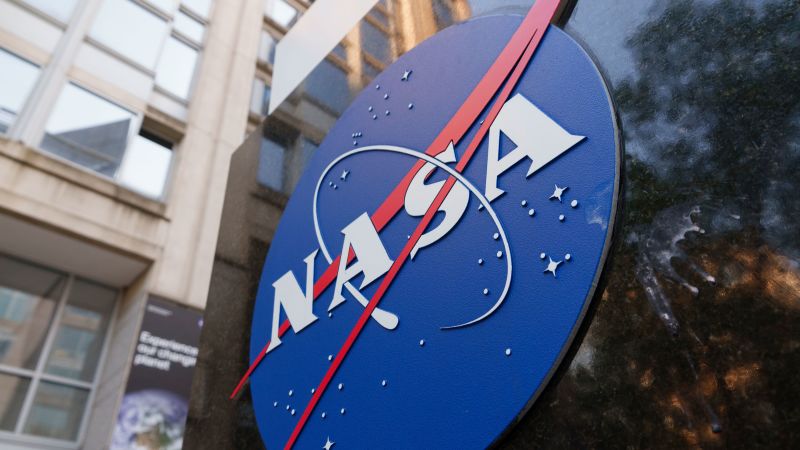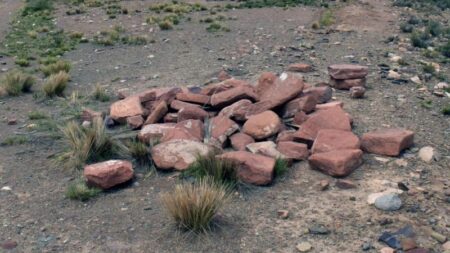In a significant development within the realm of space exploration, a coalition of 287 scientists and current and former employees of NASA have banded together to express their concerns regarding drastic budget cuts, canceled grants, and an alarming “culture of organizational silence” within the agency. They assert that this prevailing environment could threaten the safety of astronauts and potentially compromise mission integrity. This group, carrying the weight of expertise and experience, has produced a formal declaration, now referred to as “The Voyager Declaration.” This document is a poignant homage to the astronauts who have tragically lost their lives in prior spaceflight accidents and serves as a call to action directed at acting NASA Administrator Sean Duffy.
Duffy, who was appointed after the abrupt removal of Janet Petro, a long-standing NASA official, is a figure closely associated with the Trump administration. The declaration bears an interesting composition of signatories, featuring 156 individuals who chose to remain anonymous, alongside 131 who lent their names publicly to the document, which includes at least 55 current NASA employees. They collectively emphasize the necessity for major programmatic shifts at NASA to be orchestrated with strategy and caution, highlighting the detrimental implications of rapid and wasteful changes that have permeated the organization over the previous six months.
An alarming aspect raised within the declaration pertains to the proposed alterations to NASA’s Technical Authority, an established safety protocol designed to maintain stringent safety checks and balances at the agency. This system, forged as a direct response to the heartbreaking 2003 Columbia shuttle disaster, empowers employees across various levels to voice safety concerns outside their immediate reporting lines. Currently, significant apprehensions exist among employees regarding potential changes that might hinder this critical channel, which is seen as essential for expressing dissent over technical decisions without fear of retribution.
The stakes are undeniably high, especially for those working on human spaceflight initiatives. As NASA faces the daunting prospect of losing thousands of employees and undergoing major restructuring, the sentiments regarding safety and efficiency are increasingly paramount. The impetus for the letter comes amidst an environment of uncertainty, which has further intensified following recent announcements about potential workforce reductions.
Moreover, the declaration is part of a broader wave of discontent expressed by various federal entities. For example, employees at the National Institutes of Health and the Environmental Protection Agency have similarly contested recent changes and cuts, sparking significant administrative responses — including administrative leaves for some EPA employees following their expressions of dissent. Many within NASA have articulated fears that opposing or even questioning the Trump administration could jeopardize their livelihoods. Nonetheless, they argue that public safety and scientific integrity are ultimately more critical than personal security.
Ella Kaplan, a contractor at a NASA-affiliated entity, encapsulates this sentiment by highlighting her experience as a minority employee in the agency. She perceives a marked shift in the overall culture, which feels less supportive and more intimidating in recent times after the agency’s compliance with the Trump administration’s directives to dismantle Diversity, Equity, Inclusion, and Accessibility initiatives. Kaplan, along with other signatories, underscored that these policies contribute not only to a welcoming work environment but also to the formation of sound scientific practices.
The declaration also critiques the Trump administration’s directives to cancel certain projects that were previously sanctioned by Congress, labeling these actions as wasteful. Furthermore, there are reports of NASA leadership acting preemptively in shutting down facilities linked to projects facing budget cuts even before Congress finalized its appropriations. The signatories emphasize the consequences of such cuts not only as a threat to the agency’s capabilities but also as a disservice to American taxpayers who have invested in NASA’s development and success.
In light of this pressing situation, the Voyager Declaration stands as a testament to the commitment of the NASA workforce—both past and present—to advocate for their mission and ensure the safety of future space exploration efforts. As they implore Duffy to reconsider the trajectory of current policies, they call for a return to principles that prioritize human safety, scientific integrity, and efficient use of public resources, positioning the agency to fulfill its critical role in advancing space exploration and research.












